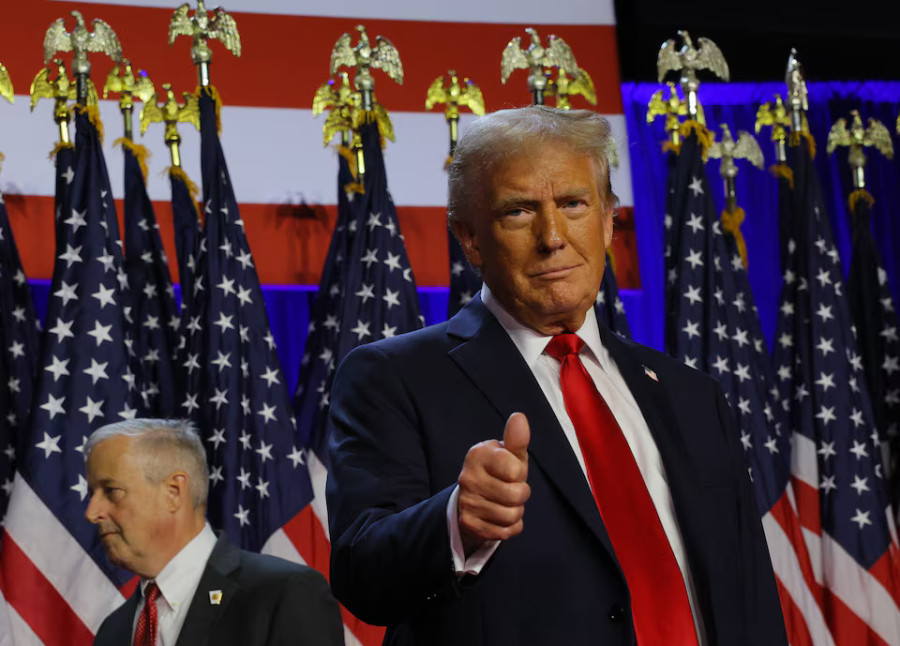Editorial
Trump again
As the appeal of ‘democratic strongmen’ like Trump grows far and wide, our own freedoms may come under jeopardy.
Donald Trump overcame them all. A felon convicted 34 times over. A pair of assassination attempts. Endorsement of Kamala Harris, his Democratic rival, by major news organisations and Hollywood A-listers. The baggage of history, whereby in the past 100 years just one other person had won a non-consecutive American presidential election. The opposition’s message that Trump harboured fascist tendencies, that he was openly misogynistic, that he had no concrete plan besides the vacuous ‘Make America Great Again’ slogan—they all fell on deaf ears. On election eve, most Americans said the economy was their top priority and they seem to have voted accordingly—never mind that the US continues to be the best performing rich economy, by a long shot. Whatever the state of the overall economy, many Americans felt their personal lives were getting worse. Harris also clearly failed to kindle hope as first-time voters, especially young men, leaned towards Trump. Arab-Americans were unhappy with US President Joe Biden’s handling of the war in Palestine, and Vice-president Harris seems to have lost many of their votes as a result. It was also interesting that more Americans saw in Trump a better presidential material than they did in Harris.
So what does Trump’s triumph mean, especially for the rest of the democratic world? A few lessons emerge. One, it reinforces the message that voters are far from rational creatures and tend to vote with their hearts. Logically, compared to 2020, more Blacks voting for Trump, someone who harbours white supremacist views, does not make sense. Nor does the fact of Arab-Americans voting for Trump, who is likely to be worse when it comes to protecting the rights of the Palestinians. Even more generally, why would you choose someone who neither has the temperament nor the credentials to handle arguably the most important job in the world? But, again, in this age of social media, hard logic alone is insufficient. For example, many first-time male voters said they were persuaded to vote for Trump after watching 30-second Republican messages on TikTok. And most Americans think they are worse off today than they were four years ago, despite many indications to the contrary. Concomitantly, by appealing to people’s baser instincts, a lying Trump could capture many more votes than a rather wooden but more truthful Harris.
As in the US, there is a lot of disgruntlement in Nepal, especially among the youth. They feel cheated by old parties and their ageing leaders. Yet newer parties have also failed to gain their trust. Currently, it is unclear what this state of perpetual disgruntlement will lead to. Another Bangladesh, some suspect. People are looking for options to the status quo. Again, as in the US, a strongman may emerge in order to tap into this deep sense of frustration. Like Trump’s tropes, the message of these strongmen will be simple yet emotionally-laden and hence easy to gulp down in a world increasingly drowned in confusing online chatter. We often take our liberties for granted. But as the appeal of ‘democratic strongmen’ like Trump grows far and wide, those freedoms may come under jeopardy. If the US, with its strong history of check and balance, is struggling to manage a single man’s challenge to democracy, a country like Nepal with its weak institutions will be a lot more vulnerable to despotism.




 10.55°C Kathmandu
10.55°C Kathmandu














